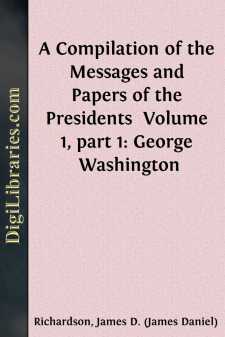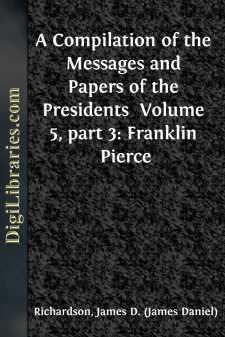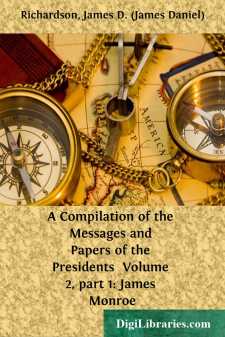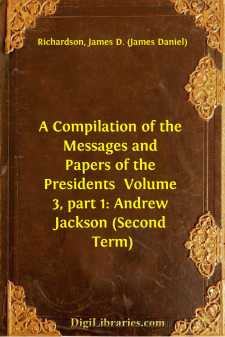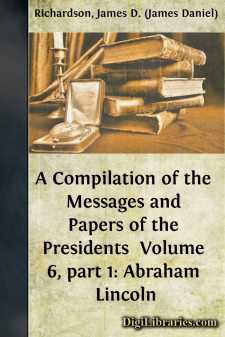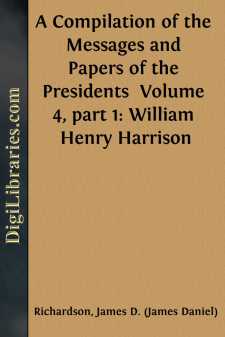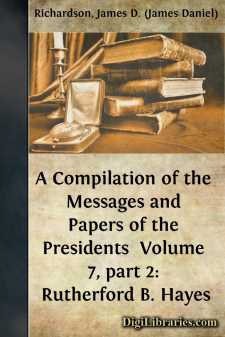Categories
- Antiques & Collectibles 13
- Architecture 36
- Art 48
- Bibles 22
- Biography & Autobiography 813
- Body, Mind & Spirit 141
- Business & Economics 28
- Children's Books 12
- Children's Fiction 9
- Computers 4
- Cooking 94
- Crafts & Hobbies 4
- Drama 346
- Education 46
- Family & Relationships 57
- Fiction 11826
- Games 19
- Gardening 17
- Health & Fitness 34
- History 1377
- House & Home 1
- Humor 147
- Juvenile Fiction 1873
- Juvenile Nonfiction 202
- Language Arts & Disciplines 88
- Law 16
- Literary Collections 686
- Literary Criticism 179
- Mathematics 13
- Medical 41
- Music 40
- Nature 179
- Non-Classifiable 1768
- Performing Arts 7
- Periodicals 1453
- Philosophy 64
- Photography 2
- Poetry 896
- Political Science 203
- Psychology 42
- Reference 154
- Religion 513
- Science 126
- Self-Help 83
- Social Science 81
- Sports & Recreation 34
- Study Aids 3
- Technology & Engineering 59
- Transportation 23
- Travel 463
- True Crime 29
A Compilation of the Messages and Papers of the Presidents Volume 6, part 2: Andrew Johnson
Categories:
Description:
Excerpt
Andrew Johnson
Andrew Johnson was born in Raleigh, N.C., December 29, 1808. His parents were very poor. When he was 4 years old his father died of injuries received in rescuing a person from drowning. At the age of 10 years Andrew was apprenticed to a tailor. His early education was almost entirely neglected, and, notwithstanding his natural craving to learn, he never spent a day in school. Was taught the alphabet by a fellow-workman, borrowed a book, and learned to read. In 1824 removed to Laurens Court-House, S.C., where he worked as a journeyman tailor. In May, 1826, returned to Raleigh, and in September, with his mother and stepfather, set out for Greeneville, Tenn., in a two-wheeled cart drawn by a blind pony. Here he married Eliza McCardle, a woman of refinement, who taught him to write, and read to him while he was at work during the day. It was not until he had been in Congress that he learned to write with ease. From Greeneville went to the West, but returned after the lapse of a year. In 1828 was elected alderman; was reelected in 1829 and 1830, and in 1830 was advanced to the mayoralty, which office he held for three years. In 1831 was appointed by the county court a trustee of Rhea Academy, and about this time participated in the debates of a society at Greeneville College. In 1834 advocated the adoption of a new State constitution, by which the influence of the large landholders was abridged. In 1835 represented Greene and Washington counties in the legislature. Was defeated for the legislature in 1837, but in 1839 was reelected. In 1836 supported Hugh L. White for the Presidency, and in the political altercations between John Bell and James K. Polk, which distracted Tennessee at the time, supported the former. Mr. Johnson was the only ardent follower of Bell that failed to go over to the Whig party. Was an elector for the State at large on the Van Buren ticket in 1840, and made a State reputation by the force of his oratory. In 1841 was elected to the State senate from Greene and Hawkins counties, and while in that body was one of the "immortal thirteen" Democrats who, having it in their power to prevent the election of a Whig Senator, did so by refusing to meet the house in joint convention; also proposed that the basis of representation should rest upon white votes, without regard to the ownership of slaves. Was elected to Congress in 1843 over John A. Asken, a United States Bank Democrat, who was supported by the Whigs. His first speech was in support of the resolution to restore to General Jackson the fine imposed upon him at New Orleans; also supported the annexation of Texas. In 1845 was reelected, and supported Polk's Administration. Was regularly reelected to Congress until 1853. During this period opposed all expenditures for internal improvements that were not general; resisted and defeated the proposed contingent tax of 10 per cent on tea and coffee; made his celebrated defense of the veto power; urged the adoption of the homestead law, which was obnoxious to the extreme Southern element of his party; supported the compromise measures of 1850 as a matter of expediency, but opposed compromises in general as a sacrifice of principle....



